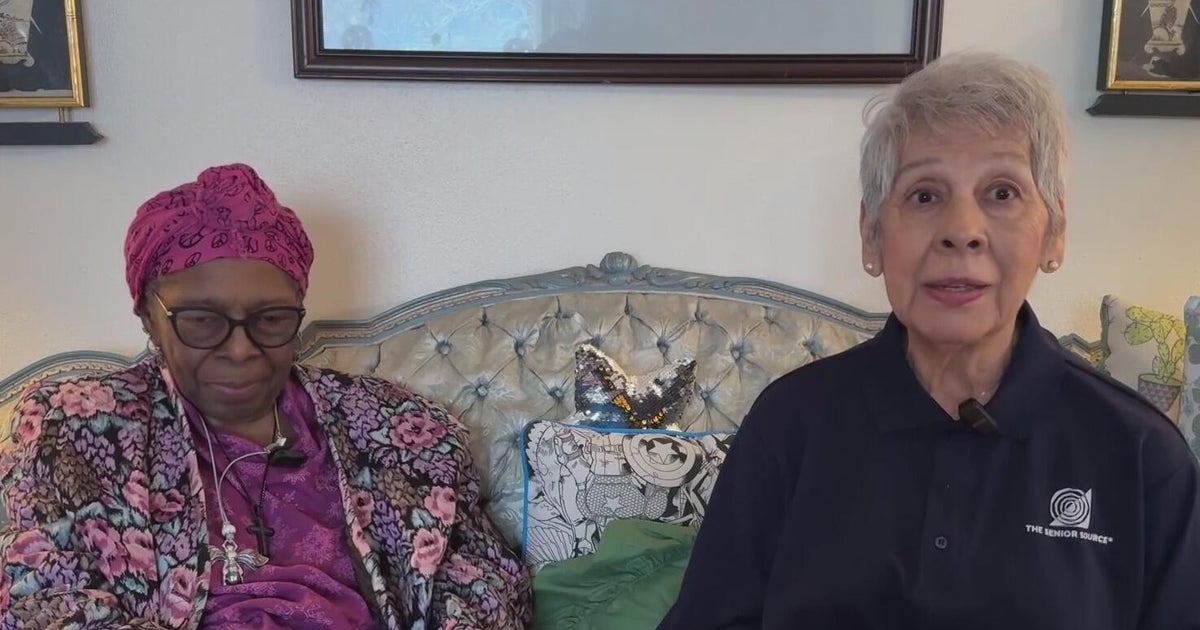The new middle-class retirement plan: Working into old age
A new glimpse into how middle-class people in the U.S. think about retirement is revealing some startling views about how long they expect to live and to work.
About half of middle-income Americans who are currently employed say they expect to work past age 65, according to a study from the Transamerica Center for Retirement Studies and the Transamerica Institute. While many say that is their preference, roughly 8 in 10 also cite financial pressures, including a shortfall in savings as well as worries that Social Security won't provide enough financial support.
Transamerica defines "middle class" — a broad sociological term rather than a strict financial measure of income — as people earning $50,000 to $200,000 annually, which accounts for roughly 55% of U.S. adults.
"Many are saving for retirement, but the question is whether they are saving enough," Catherine Collinson, the CEO of Transamerica Institute, told CBS MoneyWatch.
The perils of living longer
Middle-class households have saved a median of $66,000 in their retirement accounts, she noted, citing the survey data. But, as it grows, that nest egg might not prove to be enough to fund a retirement based on a person's current age and lifestyle. It's also a far cry from the $1.5 million that the typical worker said they'd need to fund a comfortable retirement, according to a Northwestern Mutual study published earlier this year.
To be sure, the number of 401(k) millionaires — people with at least $1 million in their retirement accounts — has recently surged to a new record, thanks to gains in the stock market, according to new Fidelity data. But that reflects only about 500,000 accounts, a fraction of the roughly 160 million people in the U.S. labor force.
Meanwhile, many middle-class workers are envisioning retirements that could stretch to 25 years or more, given their expectation of living to a median age of 90. A longer retirement requires socking more money away to fund more years out of the workforce.
"Longer human lifespans are prompting people to reconsider their life course including their time spent in the workforce relative to retirement," Collinson added. "Many envision working longer and retiring at an older age which affords them more time to earn income and save, while others may be planning to fund longer retirements."
"Not really a retirement"
Working past 65 is increasingly common in the U.S., with about one in five people over that age — approximately 11 million Americans — still holding down a job, according to the Pew Research Center.
Some, like Larry and Joyce Gesick, who are 77 and 66, respectively, recently told CBS News they continue to work because of tight finances. "It's not really a retirement," Joyce told CBS News. "It's working every day."
Only about 10% of Americans between 62 and 70 are both retired and financially stable, according to noted retirement expert Teresa Ghilarducci, whose book "Work, Retire, Repeat: The Uncertainty of Retirement in the New Economy" explores the financial pressures facing more Americans in retirement.
The reason, Ghilarducci says, is partly due to the current retirement system, which places the onus on workers to manage their own savings decisions through their 401(k)s and similar plans.
In an ideal world, these plans can work well for retirement planning. But, as Ghilarducci told CBS MoneyWatch earlier this year, it's common for workers to experience job losses or financial stressors, disrupting their best intentions to put money away for retirement.
Even middle-class workers with access to 401(k)s aren't always participating, with the Transamerica study finding that about 1 in 7 aren't using their employer-sponsored plans.
And once workers have a 401(k), many are using the savings as a pre-retirement financial cushion, the analysis found. About one-third said they'd tapped their 401(k) or other retirement plan for a loan, early withdrawal or a hardship withdrawal, a share that Transamerica described as "concerning." The top reasons for doing so were financial emergencies or paying off debt, the firm found.
Such withdrawals can sap the ability to save for a well-funded retirement and increases the risk of running short of money in old age.
Despite these challenges, about 7 in 10 middle-class Americans told Transamerica they're confident they'll be able to retire with a comfortable lifestyle. Many envision traveling, volunteering or taking care of grandkids once they've stepped back from work.
"The middle class has an upbeat vision about retirement as a time in life which brings opportunities for travel, spending time with family and friends, pursuing hobbies and more," Collinson noted. "However, as a departure from long-standing notions, the middle class does not see retirement and work as being mutually exclusive."



